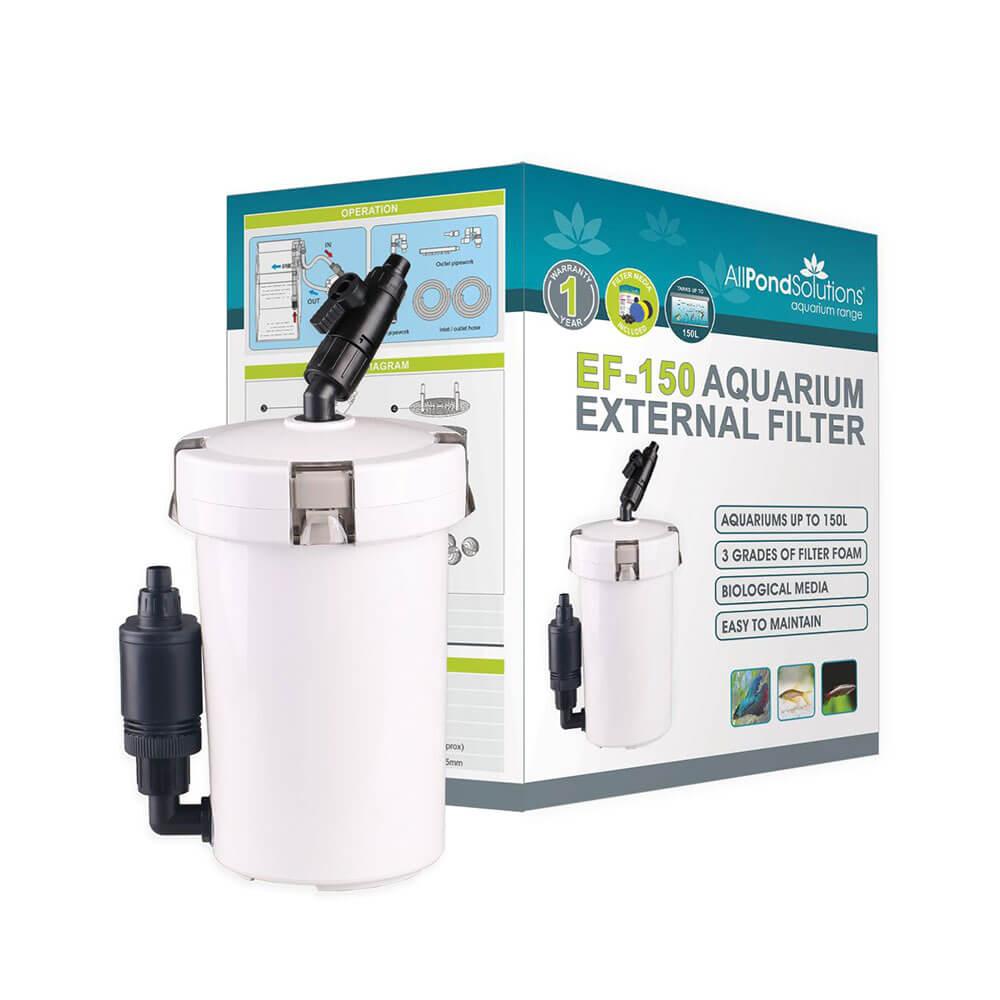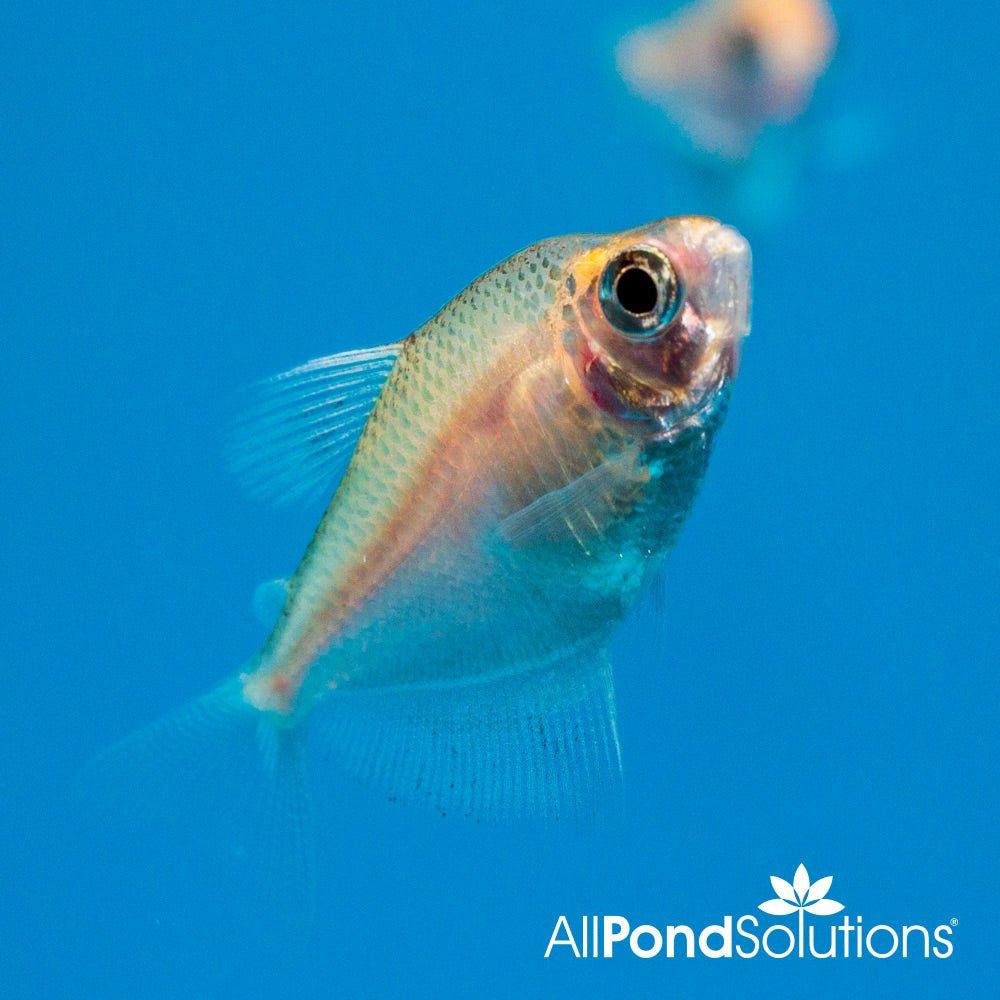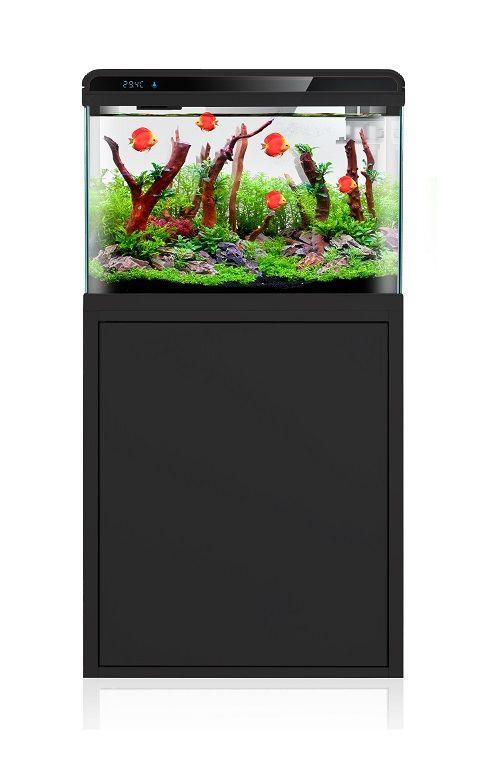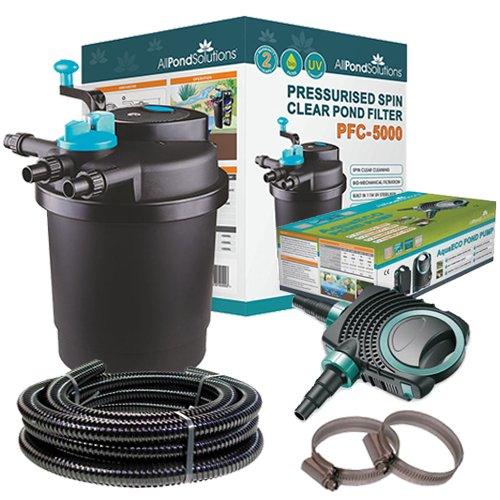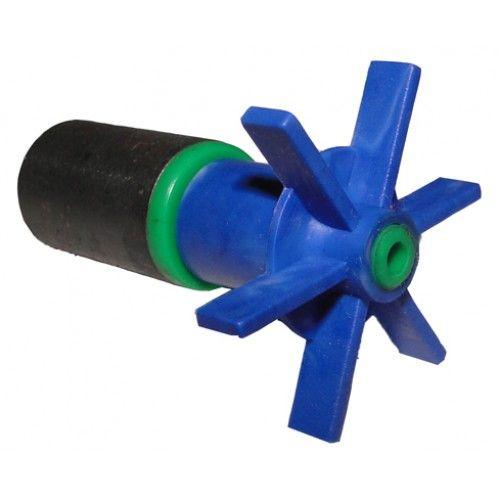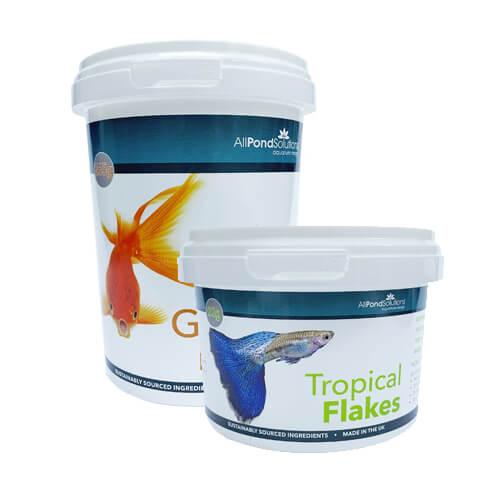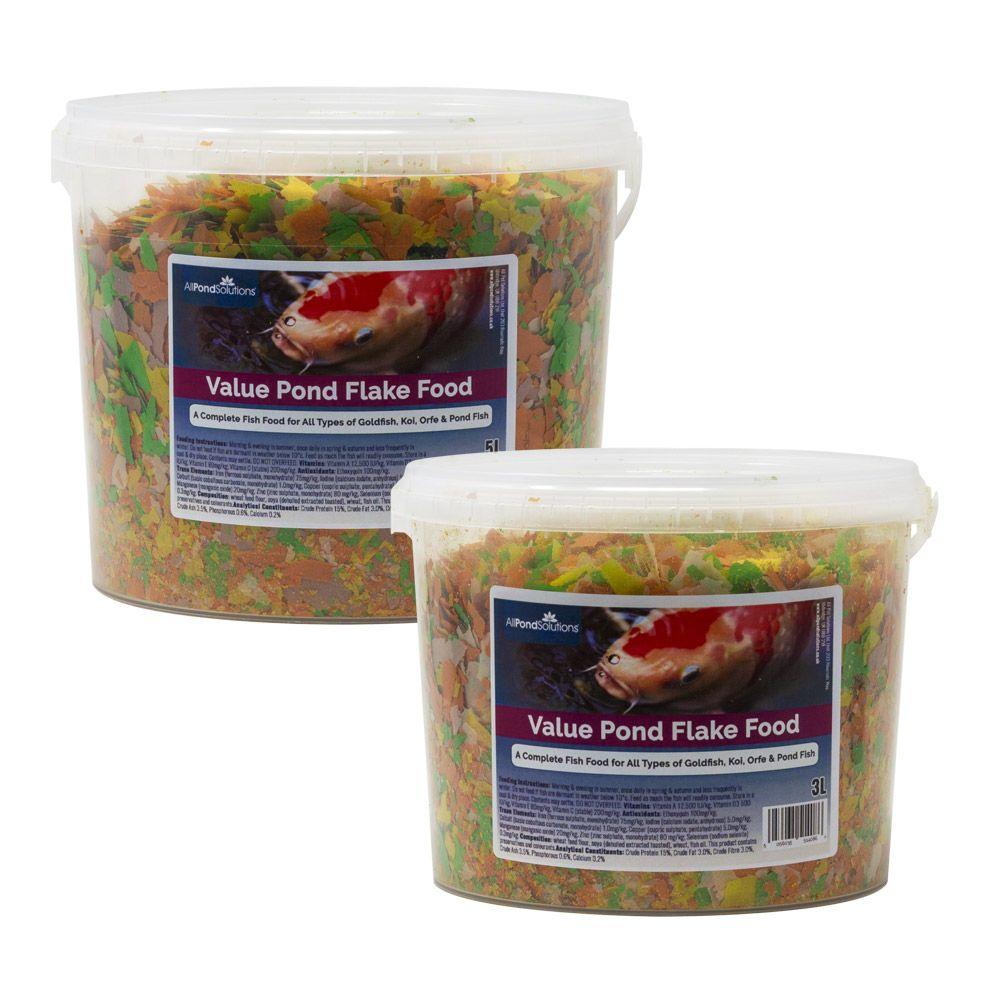Scientific Name: Gymnocorymbus ternetzi
Please note – The image used above is for illustration purposes only; Size, colour and sex may vary. Many of our livestock species are sold as juveniles and have not yet reached their full size and colour potential. If you have any concerns about the size or colour of the livestock you wish to order, please contact our livestock team via our support centre before placing your order. Due to the large quantities of livestock orders daily, the livestock team will are unable to select fish / shrimp to meet specific gender or aesthetic needs.
Approximate purchase size : 2 - 3cm
All Pond Solutions will always endeavour to supply as close to the approximate size range as possible. Due to variations from suppliers on rare occasions this may not always be possible.
How easy are they to care for?
A largely hardy species that is ideal for beginners to the hobby
How large can they grow?
6cm
Where in the world are they from?
Black widow Tetra are from the Rio Paraguay and GuaporÔøΩ basins in Brazil and Argentina.
What is the ideal number to keep together?
White Skirt Tetras are a shoaling species, and are best kept in large numbers. For best results we recommend keeping at least 6 in a shoal - the more the happier they will be.
What water conditions do they require?
Ideally slightly acidic water conditions are provided between 6.5pH - 7pH however they will happily live in conditions ranging up to pH of 7.5 or higher. Temperatures should range between 24-26°C.
What should you feed them?
White Skirt Tetra should be fed a variety of flake, frozen, freeze dried and live foods for a varied diet. Being omnivores they will happily accept a wide range of foods.
How compatible are they with other fish?
White Skirt Tetra are peaceful community fish and are generally accepeted by a wide range of tank mates. Please see the compatability chart below for more information.
Can they be bred in captivity?
Males are noticeably slimmer than the female, and have pointed dorsal and anal fins. Like most Tetra they are not parental so may eat spawned eggs, however they are not difficult to breed, but will require a separate tank to raise fry.
